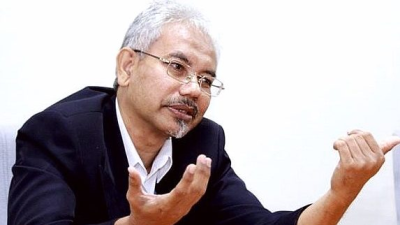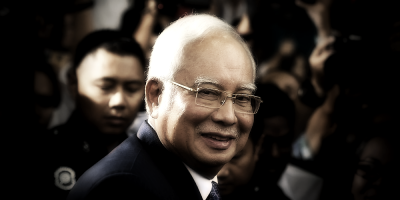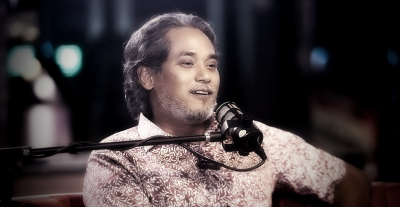
The people in a nation who voice their concerns about issues of politics, religion and others in a structured manner is known to many as the ‘civil society’.
I never knew that I was part of the civil society until I suddenly received a Civil Society award from the Kuala Lumpur and Selangor Chinese Assembly Hall for my little efforts.
A strange honor for a man who never demonstrated on the streets, never stood vigil outside of police stations and never stormed the parliament sending memorandum after memorandum.
All I have done was to write, speak and participate in discourses.
Of course, I also gave many frank interviews to the media when called upon, and I have even drafted many media statements with my friends, those people who are from the civil society.
For 20 years, I have walked with this band of responsible citizenry who are absolutely necessary for a mature democracy.
To my mind, the civil society is a group of enlightened, selfless and courageous individuals who would merit to me the gates of heaven in the hereafter.
I would never describe myself in any of the three words I just wrote. However, as good and as brave as these fine Malaysians are, I have noticed that they seem to be stuck in a format or approach that has five glaring problems and issues.
If these five issues are not addressed by the civil society, I do not think any of their efforts will bear much fruit but would even aggravate and fuel the issues for the benefit of those irresponsible people who fanned them in the first place.
I hope that my friends from the civil society contemplate the five weaknesses I will outline, and turn them into a different approach that would take the enemy by surprise and shock.
The first is the use of English in any issue taken up by the civil society.
Why English? Why not Bahasa Malaysia or Bahasa Melayu?
We all know that the Malays in Umno and now in PAS control totally the narrative of the country, and yet why is the civil society not having the forums, talks and media statements in Bahasa Malaysia?
The civil society is always suggesting that there are many Malays who are ignorant, even though they are educated at universities and yet 99.99% of my hundreds of forums and talk invitations were in English.
The civil society are speaking to the converted who are mostly non-Malays who speak English. By always and always choosing English as the medium of discourse and debate, the civil society accidentally increases the ‘them and us’ narratives in the Malay mindset.
At least conduct half the forum and talks in Bahasa Malaysia. Susah sangat kah?
The excuse that the civil society always gives is that they are trying to communicate and reach out to the ‘educated Malays’.
This is now unacceptable. Why? Well… there are not many enlightened Malays who think in the value construct of the English-speaking Westerners. Furthermore, the Malays may think that the civil society is ‘insulting’ the national language just because the forums are not kegiatan dan aktiviti rasmi.
So, please, for the next 50 years, speak in Bahasa Malaysia!
Secondly, the civil society seems to be merciless in their criticism of Malay and Muslim leaders. They do not seem to follow the Malay adab of advising the elders or advising the Ketua or Pemimpin.
When the leader is an Ulama like Tuan Guru Hadi Awang, you really need to observe the Islamic adab. But here, the civil society treats our leaders like Americans who ridicule their leaders on popular television programs.
Yes, I know that the leaders are not sacred beings but people’s representatives, but that is an American culture. Here in the Muslim world of 300 million, it is slightly different.
My friend Maszlee Malik bore the worst brunt during the time that PH was in power.
I was ashamed of the civil society in the manner he was treated. So, for the sake of our children’s changed future, observe the proper decorum when presenting dissenting views and never be like the cheap social media bloggers or YouTubers for it would fuel further rift between races and faiths.
Thirdly, there are issues of Islam that require only Muslim civil society personalities to be up front.
Yes, in a democracy, each individual of whatever race or faith can bring up matters of others faith of race but it is better to let apple talk to apples.
If non-Muslims start criticizing what is deemed as Muslim issues like the Allah, the Jawi and the sacred laundromat issue, it has been shown that the extremist win every time.
Civil society of all races and faiths should hold closed door discussions with the Muslim civil society personalities and then let the Malays lead the statement to the media.
Perhaps this approach would check mate the Malay and Muslim extremist groups.
Fourthly, the civil society should learn to alter the narratives and agendas set by the extremist. For instance, the issue of human rights, equality, meritocracy, women’s rights, secularism, liberal values are all ‘dirty words and phrases’ to many Muslims because so many sermons and ceramah have indoctrinated their followers in that mindset.
On the issue of vernacular education, I had advised my fellow panelists not to use words such as ‘more vernacular schools’, the superiority of Mandarin as a global language and the name Lim Lian Geok.
With due respect to the giant stature of Lim Lian Geok and his fight for vernacular and mother tongue education, these phrases will trap any discourse or discussion to the 1960s heated debates.
I said that we should emphasize new ideas of a global education that would require a different pedagogy, approach and even medium of instruction.
But no…the panelists went on and on and on about mother tongue, Chinese schools, Lim Lian Geok and the superiority of education.
Habislah! The forum had managed to pull us back to 1960.
Fifth, and my final observation on civil society’s weaknesses, they must look at the issue of human rights and equality within the context of the Malays who have been indoctrinated with fear.
The ICERD and Rome Statute were handled so badly that it almost caused a racial conflict akin to May 13.
Even the issue of child marriages must be seen and paced within the Malay-Muslim limited exposure to the right perspective.
For a DAP woman MP to quote human rights and United Nation accord is enough to give PAS a legitimate right to rule for the next 20 years.
In conclusion, these are the weaknesses that I have observed and analyzed as to their effects upon the issues and mindset changes in the country.
I know that many of my friends will be on the defensive and totally disagree with me under the banners of freedom of speech, the rights of a democratic citizenry and courage under fire, but I am a pragmatist who would like to see change for our children, not feed the egos of those who think their fight for truth, justice and the universal way justifies their methods.
Do sit in reflection as all of us have weaknesses, for that is why we are called humans, not Gods.
As the Malay saying goes, buat baik berpada pada.
(Prof Dr. Mohd Tajuddin Mohd Rasdi is Professor of Architecture at a local university and his writing reflects his own personal opinion entirely.)
ADVERTISEMENT
ADVERTISEMENT





































